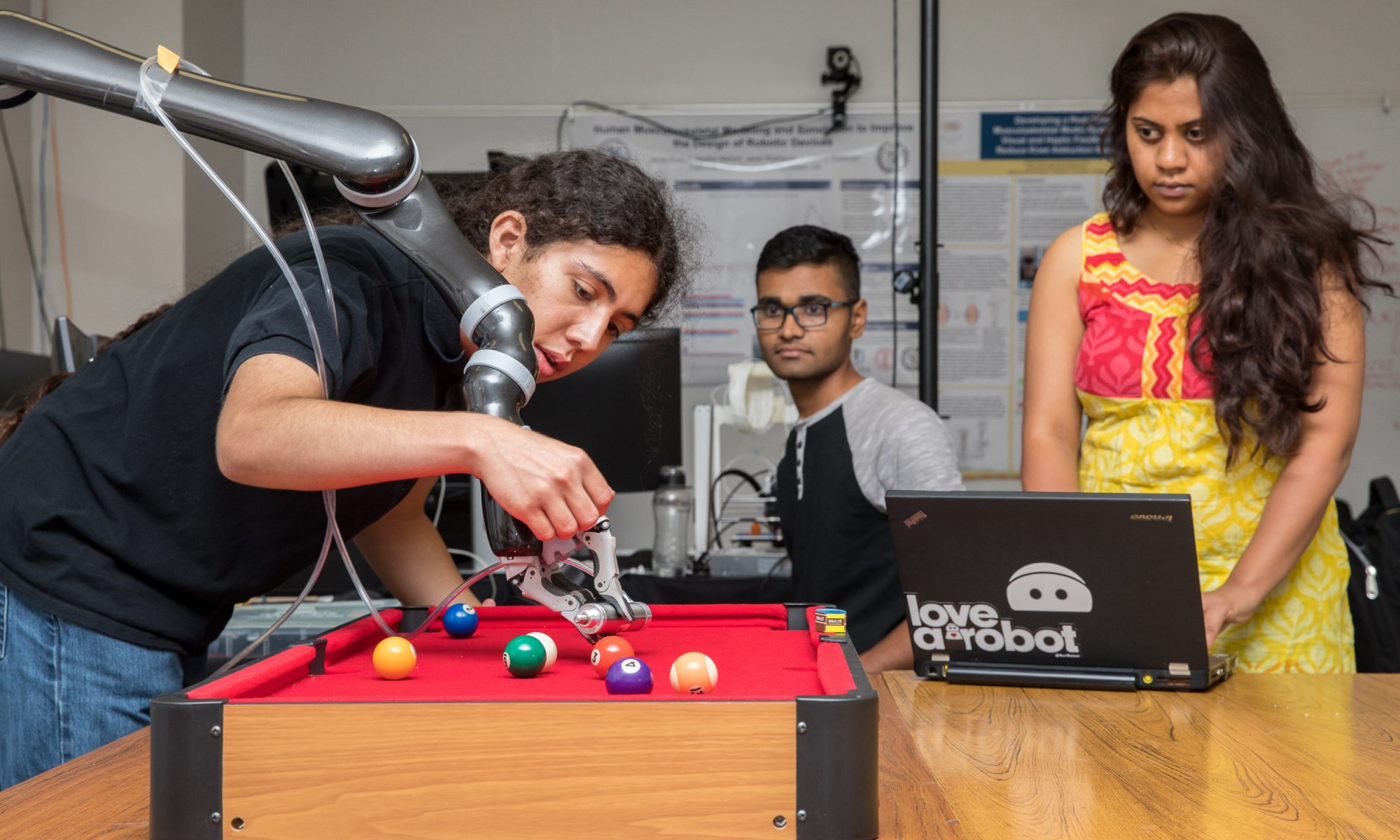
Student teams don’t make it to the CSULB Innovation Challenge finals alone. To get through the contest, they’re matched with mentors who help them think through ideas and submit their all-important business plans.
A joint project of the colleges of Engineering, Business Administration, and the Arts, the Innovation Challenge rewards winning teams with $10,000 in cash and $40,000 in financial, marketing, legal, and other services. The Innovation Challenge is designed to inspire entrepreneurship and produce one commercialization success each year.
Students who participate receive instruction on developing a business plan and help in finding fellow team members. But it’s the advice from mentors that’s most valuable.
Mentor Mike Grimshaw, managing principal of the Grimshaw Group, has been involved in the Innovation Challenge since its inception. His first year, he was matched with finance student Carl Morandell, who was developing a relaxing beverage. Morandell made it to the finals, then his partner dropped out right before they were to deliver their pitch. After an excellent pitch, another finalist – the Electric Bicycle Motocross (EMXB) team of David Pearce, Rogelio Rosas, and Dan Southard – swooped in with a working prototype, customers and a sales channel to snag first place.
Grimshaw, who also runs the Entrepreneurial Institute at California State University Dominguez Hills, says pitfalls are part of the process. For example, the team he mentored this year dropped out after realizing the market was saturated. One of the other teams he previously worked with—a Bulgarian couple creating a macular degeneration detection method—had to withdraw due to work demands. The team Grimshaw mentored in 2014 came away the winner, however. InFluidS, founded by Jeremy Bonifacio and Shahab Taherian, is creating a non-invasive device to diagnose pulmonary diseases.
As anyone who’s tried to start a company can attest, entrepreneurship takes considerable time and money. Although mentors have much to share, student teams are responsible for advancing their projects. “As a mentor, we don’t build it or run it,” Grimshaw said. “We just help them grow, open them to resources and broaden their perspectives. They learn how to pitch, work with resources, and build a company, not a product.”
Despite the “mixed results” of his teams, Grimshaw said he finds working as a mentor tremendously satisfying. “I love it. It’s in my wheelhouse,” he said. “When I see the students start to get excited and do quality work, I get enthused,” he said.
Grimshaw has more than three decades of senior-level sales and management experience at tech companies such as IBM, Cisco, Nortel, and Unisys—and has also taken numerous startup companies to acquisition or IPO. He’s an accredited angel investor, past president of the Maverick Angels-South Bay investment group, and co-founder of the South Bay Entrepreneurial Center. He’s also adjunct professor at Marymount California University Palos Verdes.
Mentor Cody Burton appreciates’ students’ enthusiasm too. During 32 years at Boeing, Burton held a variety of positions in the Commercial Aircraft and Space Exploration Divisions, including director of Boeing’s Manufacturing and Laboratory Development Center in Huntington Beach and a mentor for newly hired engineers.
“When I found out about this, it was just a natural fit. I really enjoy working with the students. No two are alike and they have such great enthusiasm,” said Burton, who has mentored two teams that made it to the finals. “There are some really creative things that have come out of the Innovation Challenge.”
Other mentors include:
- Peggy Berry, an aerospace consultant and retired Boeing executive;
- Brian Budzinski, a Boeing product review engineer and former flight test engineer;
- Dennis Fernandes, managing partner and CEO for a midstream gas company;
- Howard Fletcher, director of the CSULB Student Center for Professional Development;
- Stephen Grove, CEO of Kohn Megibow Co., a seller of used restaurant equipment;
- Jason Kim, director of strategic planning at Millennium Space Systems, a privately owned satellite company;
- David Lee, an industrial designer and former Mattel senior project designer;
- Frank Martinez, executive vice president of business development at Griffin Structures;
- Frank McEnulty, an executive with experience with startups and finance and accounting;
- Robert Moore, a process control expert, entrepreneur, and manager;
- Tom Moore, founder of two automotive-aftermarket startups;
- Richard (Rick) Neill, co-founder of Phillips Industries;
- Karl Pearson, a partner and managing director at SierraConstellation Partners;
- Kevin Peterson, president and CEO of P2S Engineering;
- Matt Petrime, VP and general manager, Applied Medical;
- Ross Riddle, president and CEO of South Coast Shingle Co./A-1 Building Material;
- Allen Schreiber, managing director of investments, Wells Fargo Advisors;
- Traci Shoblom owner of Shoblom Productions;
- Mike Smith, owner of SHR Travel Marketing; and
- Michael Thorburn, formerly of the NASA Jet Propulsion Laboratory, Space Systems/Loral, and the National Radio Astronomy Observatory.

